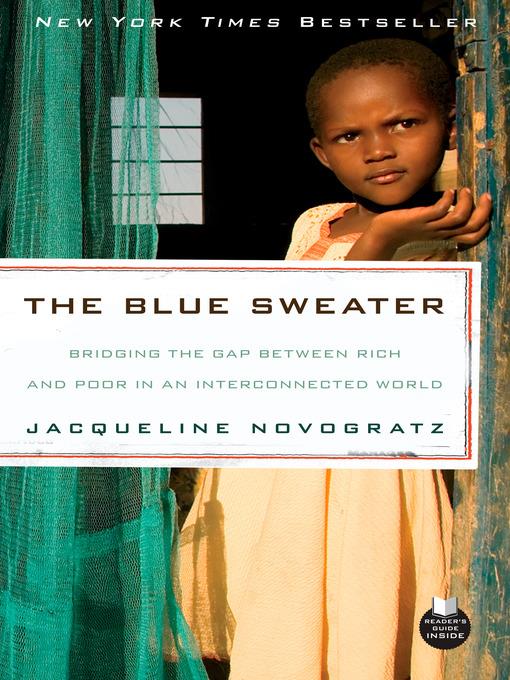
The Blue Sweater
Bridging the Gap Between Rich and Poor in an Interconnected World
فرمت کتاب
ebook
تاریخ انتشار
2010
نویسنده
Jacqueline Novogratzناشر
Harmony/Rodaleشابک
9781605296708
کتاب های مرتبط
- اطلاعات
- نقد و بررسی
- دیدگاه کاربران
نقد و بررسی

January 5, 2009
Novogratz combined her twin passions for banking and philanthropy after she left a lucrative corporate banking position to work with women’s groups in microfinance, the pioneering banking strategy that won Muhammad Yunus a Nobel Peace Prize in 2006. Her work merging market systems with development and social empowerment led her to create the Acumen Fund for entrepreneurs in developing nations, which she describes as “the opposite of old-fashioned charity.” Novogratz also focuses on her own developmental path as she charts her evolving views of capitalism and how she will “change the world.” Unfortunately, she stumbles when she strays into biographical territory, relying on clichés to bolster her professional decisions through a personal lens. The book is most interesting when it touches on the difficult decisions that Novogratz and her team must make about financial empowerment—should they charge interest on loans to poor women? can working women find acceptance in a patriarchal society?—but these dilemmas are facilely glossed, keeping the book in an uncomfortable limbo between a personal narrative and a primer on globalization.

February 1, 2009
Novogratz (founder, CEO, Acumen Fund) presents an insider's view of charitable foundations and microfinance institutions, including her own venture capital firm for the poor. Her greatest critique of philanthropic efforts is that despite their best intentions, they often focus more on making donors feel good than on actually doing good for those in need. So it's ironic that she wraps a somewhat extraneous memoir around her extremely valuable advice to charitable organizations, especially those combating poverty. Philanthropies, she says, should focus on bringing the poor into the global economic system in a sustainable way. Novogratz is most effective when examining the organizations and people with whom she works, but occasionally her book suffers from the problem she claims plagues some philanthropic effortsshe focuses on her quest to "find herself," with the people in need the supporting characters. That being said, the book valuably highlights the importance of accountability in charity and of social responsibility in business. Recommended for academic libraries with programs in social work, international relations, and business.Veronica Arellano, Univ. of Houston Libs., TX
Copyright 2009 Library Journal, LLC Used with permission.

March 1, 2009
Acumen Fund founder Novogratz blends twonarratives in this memoir abouther years fighting global poverty. In one thread, she recounts her early experiences in Africa developing microfinance organizations to assist women. Many of her reminiscences focus on relationships with the local women in government who were key to her success as well as the personal trials she encountered matching her Western vision with their ideas about the future. She also writes about later work in India and Pakistan. The other thread focuses on her return to Rwanda after the genocide. Although her inside view of global poverty initiatives and politics at the most basic level makes for interesting reading, her personal story intrudes in a manner that some readers may find self-serving. Her reflections on the genocide also detract from the economic discussion in India and Pakistan, rendering the bookmore Rwanda-centric (and thus more political) than she mayhave intended. In the end, Novogratz does provideenough information on microfinance to make readers curious to learn more.(Reprinted with permission of Booklist, copyright 2009, American Library Association.)

























دیدگاه کاربران